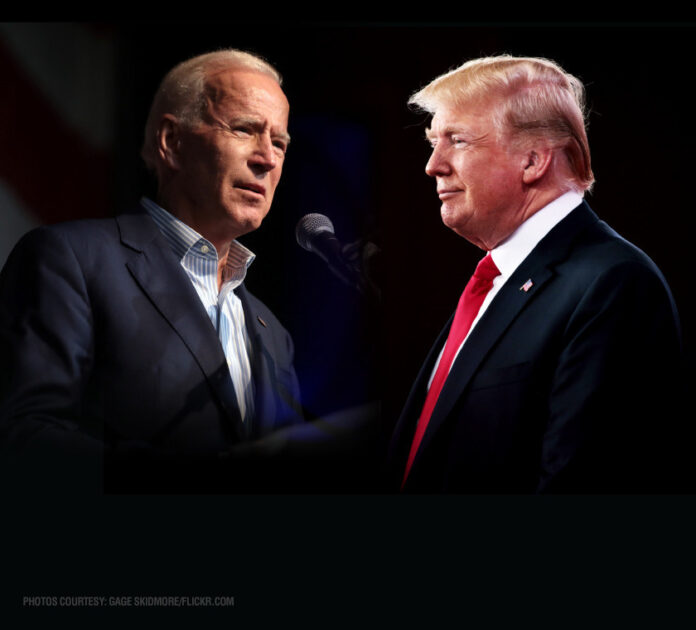Agreeing with Donald Trump that the 2020 election was stolen or accepting the (patently absurd) claim that it was “the most secure in U.S. history” are not the only two options.
By Paul Gottfried
In a critical commentary on wokeness, Michelle Malkin offers these gloomy thoughts: “The potential for mass deprivation of civil liberties simply cannot be understated in the context of end-stage America’s woke psychosis. The inmates run the asylum—and Republican traitors are supplying the keys.”
I thought about Malkin’s “woke psychosis” while listening to Bret Baier on Fox News scolding Trump and his fans for endangering “Our Democracy™.” Supposedly, Trump and company are performing this act by raising inappropriate questions about the last presidential election. Putting these troublemakers in their place may therefore be necessary for the well-being of the American republic.
Baier went into a particularly long tear against Trump on June 21, after showing us clips from the latest session of the January 6 committee’s hearings. He would have us believe that Trump tried to subvert the Constitution by falsely claiming to win a race he had lost. Now we might agree that Trump went too far in trying to keep the results of what he thought was a dishonest election from being officially registered. While that election stank to high heaven, particularly in my state of Pennsylvania, Trump and his confidants perhaps behaved improperly when they tried to pressure public officials into changing the electors. (Let’s not forget the Democrats had demanded the same in 2016!)
We might also agree that Trump is a man with a large ego, who doesn’t like to admit defeat. But it’s also the case that former Attorney General William Barr, Senate Minority Leader Mitch McConnell (R-Ky.), and other Republicans were ducking a perhaps necessary fight, when they hurried to dismiss charges about election fraud. There was no moral justification for meekly accepting electoral results affected by such practices as stuffing drop boxes with questionable ballots in the middle of night or changing laws unconstitutionally to allow for mail-in votes, some of which arrived after Election Day. If courts would not hear relevant grievances, then they, not the ones who brought the suits, were at fault. The finessing of the election through the coordinated efforts of the electronic media, Black Lives Matter, the Chamber of Commerce, and other enemies of Trump also raises serious questions about the possibility of fair elections in the future. Such a process will not occur if the same powerful interests are allowed to go on gaming the system.
Having Trump harp day and night on the stolen election may not help him or his party going forward. But that is a different matter from insisting that Republican officeholders and Republican candidates declare their unqualified trust in the 2020 election. Why exactly are the doubters supposed to do that? If we harbor justified suspicions that the last presidential election was fraught with carefully planned irregularities, then it behooves us to point that out and make sure the dishonesty is not repeated.
If, on the other hand, any attempt to question the election outcome should be regarded as evil and subversive, then we should be happy with allowing the same process and rules that obtained in 2020 to go on being applied. It is because this election looked so fishy that many on the Right have been complaining.
Finally, I find nothing wrong if those on the Right leave a cloud hanging over that event. They are also justified in sending occasional reminders, as Texas Republicans did last week, to the consternation of the MSM and the Republican establishment, that Biden’s election was not “legitimate.” It may be useful to air such disapproval periodically if only to let the other side know that we’re unhappy with how the last presidential election was conducted. Certain questions about that election have never been satisfactorily answered.
Even more importantly, we should give the Democrats some of their own medicine. They and their media shock troop seem to believe that they, but not their opponents, are entitled to deny election results and even to engage in fits of anger after losing. Although figures on the Left such as Hillary Clinton, Al Gore, Stacey Abrams, and Uncle Joe have all challenged election results, in some cases for years, Republicans are expected not to follow this example. Those on the other side of leftist opinion must accept a double standard, lest they anger the press, which in turn will upset “moderate” Republicans.
Personally, I reject that double standard. And never as much as when I heard Baier trying to get Senator Tim Scott (R-S.C.) to abjure Trump during a spontaneous interview. The Fox News anchor first buttered up his guest by speaking benevolently about his possible presidential run. Once that was done, Baier tried to prod Scott into refusing support for the former president if he runs again. Scott however retorted “Of course, I’d support Trump.” This pol does know a thing or two. He understands that it would be foolish to scorn a party icon, while allowing himself to be pulled toward the woke side.
Originally published by American Greatness. Republished with permission.
For more great content from Budget & Tax News.
For more great content from Rights, Justice & Culture News.
For more from The Heartland Institute.











